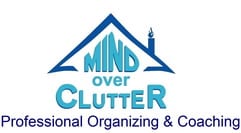Make a Decision and Learn from Your Mistakes
I first published this article in 2015. 10 years ago cell phones and data were not as prevalent as today. We spend hours researching items. We can get more information than we can adequately process. How much information do need before you make a decision?
Harold Taylor is a time management specialist. He currently writes about retirement. This article appeared in his June 2015 Taylor Time newsletter. Contact him to get on his mailing list and receive other great information on organizing time,space and retirement. Harold Taylor Time Consultants Inc | info@taylorintime.com
Slow decision-making wastes time, as do spur-of-the-moment decisions, which usually result in costly and time- consuming mistakes. But the worst thing you can do is procrastinate in decision-making. Napoleon Hill, the author of Think and Grow Rich, once conducted a survey of successful people and found all of them were decisive. Don’t be afraid of being wrong. We learn from our mistakes; but if we do nothing, we neither accomplish anything nor learn anything.
consuming mistakes. But the worst thing you can do is procrastinate in decision-making. Napoleon Hill, the author of Think and Grow Rich, once conducted a survey of successful people and found all of them were decisive. Don’t be afraid of being wrong. We learn from our mistakes; but if we do nothing, we neither accomplish anything nor learn anything.
Delay until you have enough information, but don’t wait until you have all the information. If you have all the information, the course of action becomes a foregone conclusion: no real decision is necessary. Have the courage to make decisions with only 70% to 80% of the facts. When you have mulled over the facts and considered, the alternatives, sleep on it. Decisions are usually better after a good night’s sleep.
Spend time in proportion to the importance of the decision. For instance, don’t waste a lot of time discussing the menu for the staff Christmas party. The decision to close down an operation or expand the product line warrants a greater expenditure of that costly commodity called time. Make minor decisions quickly. If the consequence of the decision is not important, it is not worth much of your valuable time.
If the decision is yours alone to make, and you seem to get bogged down in the process and get frustrated by your lack of progress, it’s frequently faster, in the long run, to leave the problem for a short period of time. Work on some unrelated jobs for a few hours or even a few days and then tackle the problem anew. The change in pace will revitalize your thinking. But delay it only once or you will be tempted to procrastinate.
Always make short-term decisions with long-term objectives in mind. Don’t make a band-aid decision that solves the immediate problem, but results in time-consuming problems further down the road.
And above all, don’t waste time on past decisions. Instead of saying “If only I had done such and such,” say instead, “Next time I will ..”
 Julie Stobbe is a Trained Professional Organizer and Lifestyle Organizing Coach who brings happiness to homes and organization to offices, virtually using Zoom. She has been working with clients since 2006 to provide customized organizing solutions to suit their individual needs and situation. She uses her love of teaching to reduce clutter, in your home, office, mind and time. She guides and supports you to be accountable for your time, to complete projects and reach your goals. If you’re in a difficult transition Julie can coach you to break-free of emotional clutter constraining you from living life on your terms. Online courses are available to help instruct, coach and support your organizing projects. Get started by downloading Tips for Reorganizing 9 Rooms.
Julie Stobbe is a Trained Professional Organizer and Lifestyle Organizing Coach who brings happiness to homes and organization to offices, virtually using Zoom. She has been working with clients since 2006 to provide customized organizing solutions to suit their individual needs and situation. She uses her love of teaching to reduce clutter, in your home, office, mind and time. She guides and supports you to be accountable for your time, to complete projects and reach your goals. If you’re in a difficult transition Julie can coach you to break-free of emotional clutter constraining you from living life on your terms. Online courses are available to help instruct, coach and support your organizing projects. Get started by downloading Tips for Reorganizing 9 Rooms.
Contact her at julie@mindoverclutter.ca
Click here to learn more about her online course Create an Organized Home.
X – Facebook – Facebook group Organizing Mind and Space
photo credit: <a href=”http://www.flickr.com/photos/53326337@N00/4473565014″>Well, that’s perplexing…</a> via <a href=”http://photopin.com”>photopin</a> <a href=”https://creativecommons.org/licenses/by-sa/2.0/”>(license)</a>

